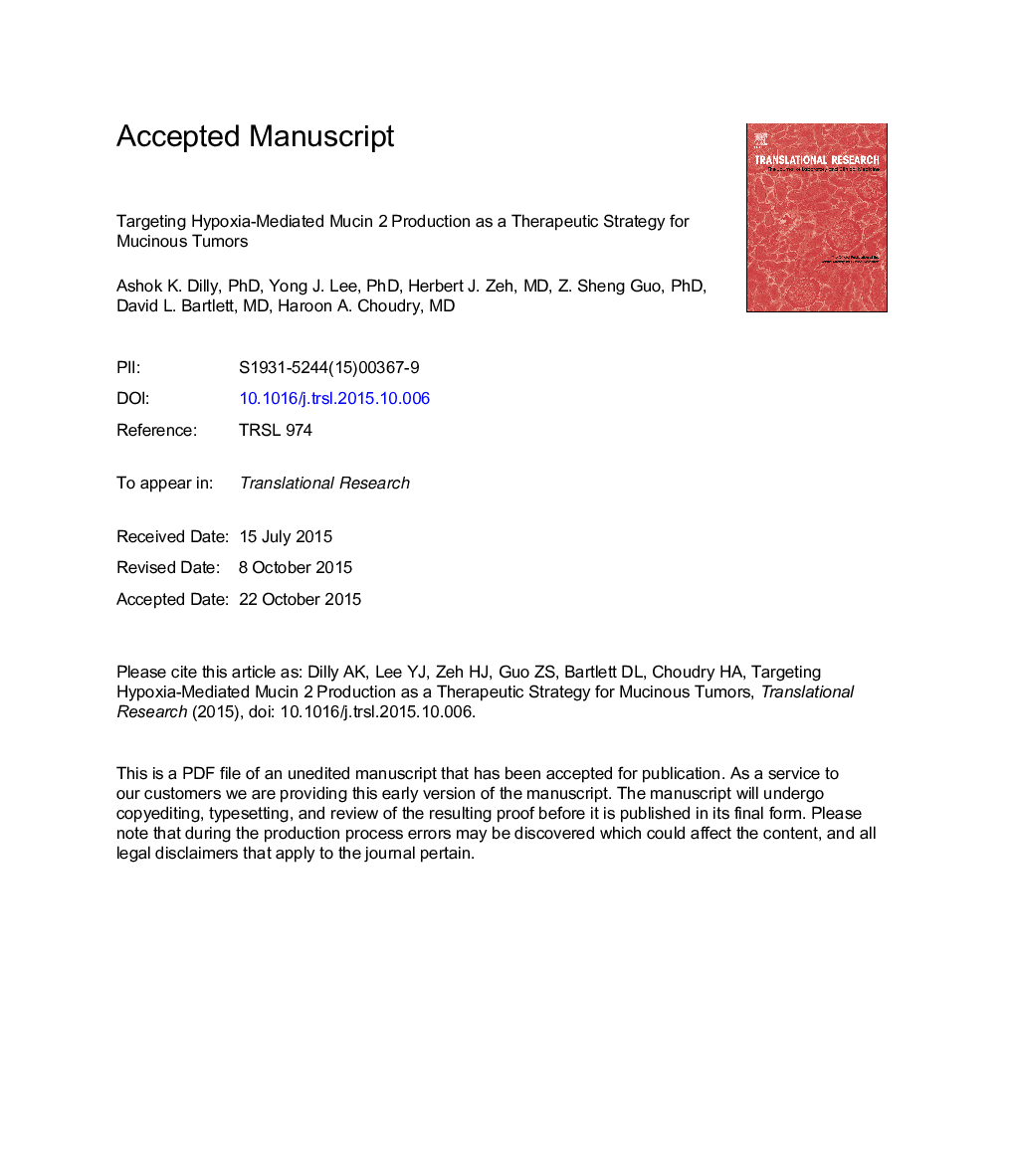| Article ID | Journal | Published Year | Pages | File Type |
|---|---|---|---|---|
| 6156066 | Translational Research | 2016 | 35 Pages |
Abstract
Excessive accumulation of mucin 2 (MUC2; a gel-forming secreted mucin) protein in the peritoneal cavity is the major cause of morbidity and mortality in pseudomyxoma peritonei (PMP). Hypoxia (hypoxia-inducible factor-1α; HIF-1α) has been shown to regulate the expression of similar mucins (eg, MUC5AC). We hypothesized that hypoxia (HIF-1α) drives MUC2 expression in PMP and is therefore a novel target to reduce mucinous tumor growth. The regulation of MUC2 by 2% hypoxia (HIF-1α) was evaluated in MUC2-secreting LS174T cells. The effect of BAY 87-2243, an inhibitor of HIF-1α, on MUC2 expression and mucinous tumor growth was evaluated in LS174T cells, PMP explant tissue, and in a unique intraperitoneal murine xenograft model of PMP. In vitro exposure of LS174T cells to hypoxia increased MUC2 messenger RNA (mRNA) and protein expression and increased HIF-1α binding to the MUC2 promoter. Hypoxia-mediated MUC2 protein overexpression was downregulated by transfected HIF-1α small interfering RNA (siRNA) compared with scrambled siRNA in LS174T cells. BAY 87-2243 inhibited hypoxia-induced MUC2 mRNA and protein expression in LS174T cells and PMP explant tissue. In a murine xenograft model of PMP, chronic oral therapy with BAY 87-2243 inhibited mucinous tumor growth and MUC2, HIF-1α expression in the tumor tissue. Our data suggest that hypoxia (HIF-1α) induces MUC2 promoter activity to increase MUC2 expression. HIF-1α inhibition decreases MUC2 production and mucinous tumor growth, providing a preclinical rationale for the use of HIF-1α inhibitors to treat patients with PMP.
Related Topics
Health Sciences
Medicine and Dentistry
Medicine and Dentistry (General)
Authors
Ashok K. Dilly, Yong J. Lee, Herbert J. Zeh, Zong Sheng Guo, David L. Bartlett, Haroon A. Choudry,
